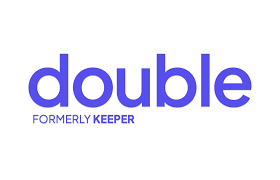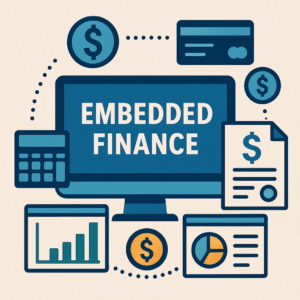Origination Technology: A Key Tool for Corporate Finance Teams in Accounting Firms
With technology, deals close quicker, advice is more insightful, and execution is streamlined, ensuring top-notch client satisfaction.

Corporate finance professionals reviewing technology mergers and acquisition deals in the tech sector.
Corporate finance is evolving, and it’s no longer just about expertise and connections. Origination technology has become essential for accounting firms to stay ahead. By using AI, data analytics, and automation, firms can now source deals more efficiently, advise clients with deeper insights, and execute transactions more quickly. Here’s how origination technology is transforming the corporate finance landscape for accounting firms.
Finding the Right Deals Before Anyone Else
Deal sourcing used to be a slow and manual process, relying on industry reports and word-of-mouth. But now, origination technology is reshaping how firms find and evaluate potential deals. Instead of waiting for leads or depending on traditional research methods, technology allows firms to quickly identify and evaluate opportunities.
Take a private equity client looking for acquisition targets. Using AI-driven tools, an accounting firm can analyse vast amounts of market data, track company performance, and identify businesses that are ripe for acquisition. With this technology, firms can spot opportunities much earlier, move faster, and beat competitors to the punch. These tools don’t just react to the market—they help firms proactively shape opportunities before they become obvious to everyone else.
Data-Powered Advisory That Wins Clients Over
Clients expect more than basic recommendations. They want actionable insights, driven by data, to back up any advice provided. Origination technology allows accounting firms to deliver just that.
In the context of M&A advisory, for instance, firms can use real-time financial benchmarking tools and simulate multiple deal structures to assess how various scenarios might play out. Instead of relying on general trends or past performance, technology allows for more specific, tailored insights. By offering real-time analyses, accounting firms can provide clients with a clearer picture of potential outcomes and faster decision-making.
For example, if a startup is looking to acquire another company, a firm can use origination technology to model several potential acquisition strategies, compare tax implications, financial risks, and expected returns. This data-driven approach helps clients move forward with confidence, knowing that the decisions are backed by solid evidence. In an increasingly competitive advisory market, using this technology sets firms apart from the competition by positioning them as trusted, insightful advisors.
Structuring Deals with Speed and Precision
Transaction structuring is a complex task that can often drag out deals. Whether it’s deciding between equity, debt, or hybrid structures, the process can be time-consuming and prone to error. Origination technology helps firms automate this process, allowing them to quickly assess the best transaction structures for their clients.
For instance, when advising on a cross-border M&A deal, origination technology allows firms to instantly analyse the tax implications in different countries, incorporating local regulations and international tax treaties. Firms can recommend the optimal structure for the deal in real time. They do not need to wait for weeks of back-and-forth between legal and financial teams. This leads to more efficient deal structuring, ultimately speeding up the transaction process and increasing the likelihood of success.
Streamlining the Capital Raising Process
One of the most challenging aspects of corporate finance is matching the right business with the right investors. Traditionally, this has involved a lot of guesswork and time spent on research. But with origination technology, firms can access real-time data that matches businesses to the best-suited investors.
Imagine a startup raising Series B funding. Instead of relying on cold emails or generic investor lists, an accounting firm can use AI tools to analyses investors’ portfolios and identify those who are likely to be interested in the business. This data-driven approach helps firms target the right investors efficiently, increasing the chances of a successful raise. The technology also allows firms to stay updated on investor activity, ensuring they’re always in tune with the latest trends.
Ensuring Smooth Post-Transaction Execution
Closing a deal is just the beginning. The real challenge often lies in ensuring that the integration of operations, systems, and corporate culture is smooth and effective. With origination technology, firms can track and manage these transitions in real time, ensuring that the promised value of the deal is realized.
For example, if a firm is advising on a merger, they can use origination technology to monitor progress on various integration tasks, such as aligning corporate cultures or integrating IT systems. This gives clients clear visibility into the post-deal process, helping them identify and resolve issues quickly. By offering post-deal support, accounting firms not only help clients realize the full value of a transaction, but they also ensure long-term success and build trust for future collaborations.
What the Future Holds for Corporate Finance
Origination technology is a game changer for corporate finance teams at accounting firms. It is more than just a set of tools — it’s a paradigm shift that allows firms to move faster, make smarter decisions, and deliver greater value. With technology streamlining deal sourcing, advisory, transaction structuring, and post-deal execution, firms that embrace these innovations will have a clear competitive edge.
Rather than replacing traditional expertise, origination technology enhances it. It allows accountants, advisors, and finance professionals to work more efficiently and make data-backed decisions that benefit their clients. As corporate finance continues to evolve, those firms that adopt and integrate these technological advancements will be positioned for long-term success in an increasingly competitive market.
The shift to origination technology may seem daunting, but it’s essential for firms to stay ahead of the curve. Adapting to this new era of corporate finance is not just about staying relevant — it’s about building stronger, more effective relationships with clients and offering greater value in every deal.





